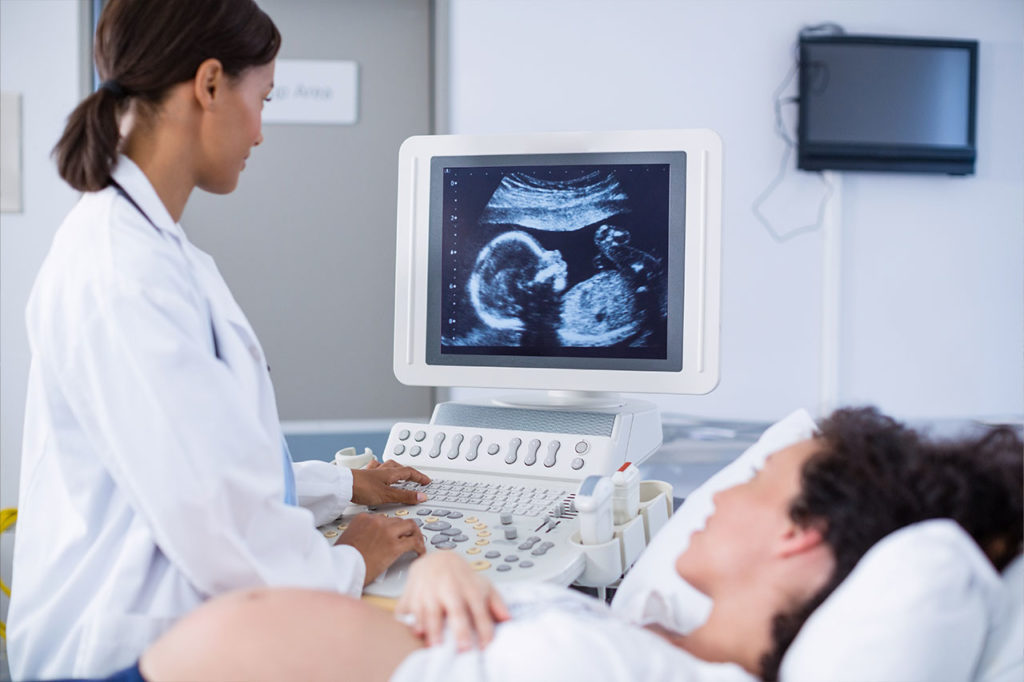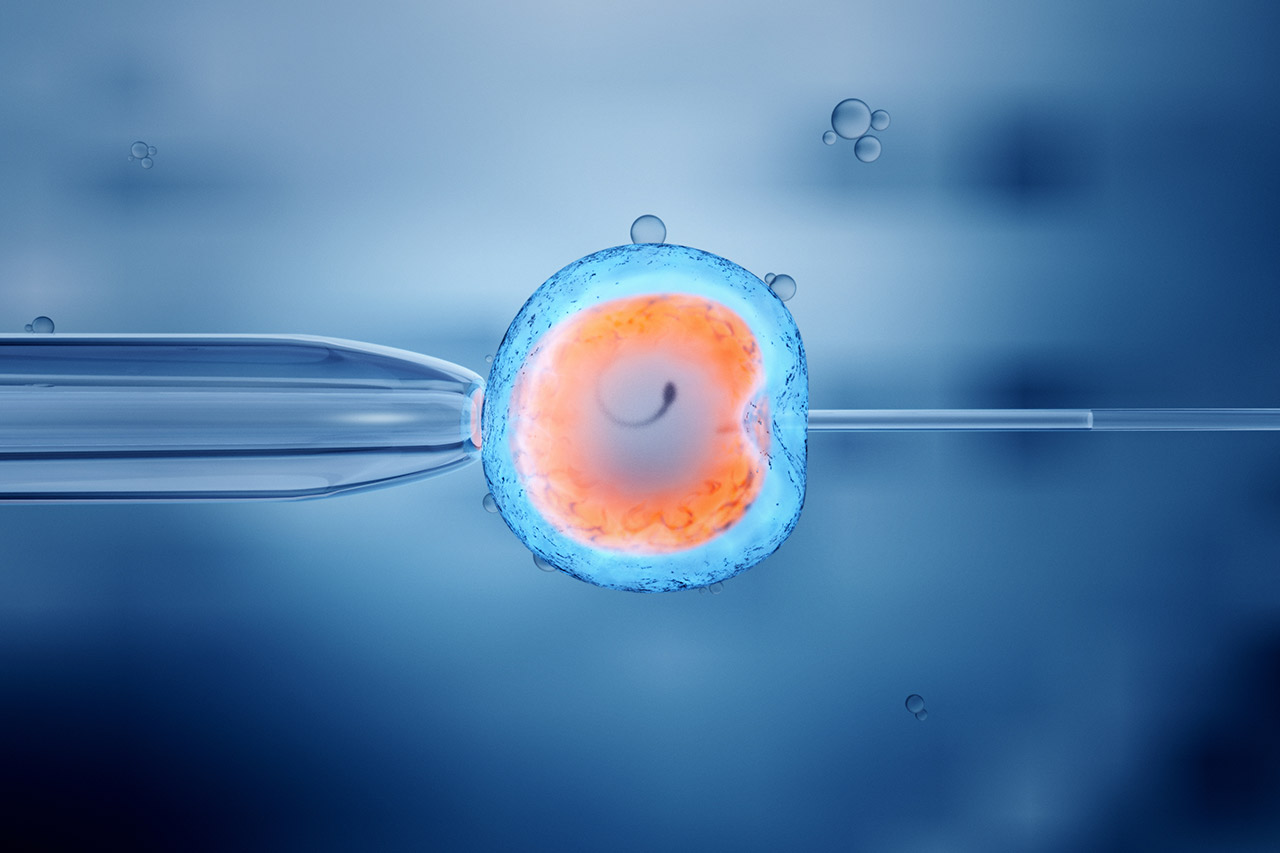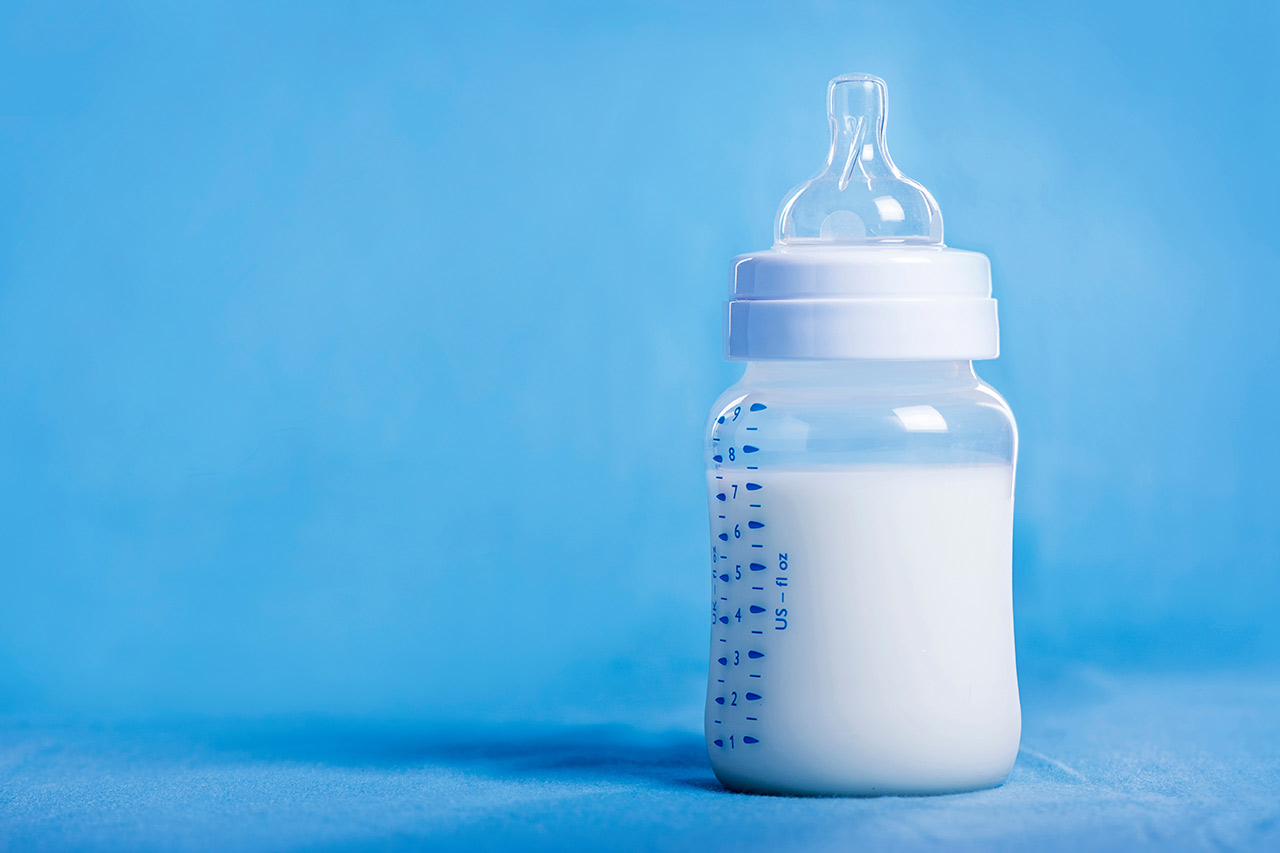Which diseases are targeted by non-invasive prenatal testing?
NIPT is mainly used to detect serious diseases, such as trisomy 21 (1/700 births in France) and the determination of the RHD gene, which can lead to massive fetal hemorrhage. Preliminary examinations are necessary before carrying out an non-invasive prenatal testing (SMM assay, nuchal translucency measurement). They are only carried out in first intention in very specific cases (twin pregnancy, parental Robertsonian translocation, etc.).
The reliable and reassuring cell free DNA test
Previously, an amniocentesis (fetal sampling) was necessary to establish the fetal karyotype, with a risk of miscarriage in 0.5 to 1% of cases. This technique has been progressively replaced thanks to the evolution of the precision of genetic sequencing techniques. Today, the fetal genotype can be determined thanks to its cells, which circulate in the maternal blood (3 to 10% of the maternal DNA). Therefore, a simple blood test of the mother is sufficient.
Read also: genetic testing: challenges and opportunities of new sequencing techniques
Non-invasive prenatal testing is systematically proposed but remain optional and at the patient’s discretion. With this technique available, an overwhelmingly large majority of women make the choice each year to go for a trisomy 21 screening. Their decision is facilitated by the fact that:
- The cell free DNA technique is simple and non-intrusive. Moreover, it does not increase the risk of miscarriage like its predecessor.
- It is fully reimbursed since January 2019.
- These tests have a very high reliability (99%), and are double-checked if they are positive.
The impact of non-invasive prenatal testing and its future prospects
Prenatal screening for constitutional genetic abnormalities (present at conception) is feasible for all diseases for which we know the responsible genes.
The use of non-invasive prenatal testing is currently limited in its reimbursement by the HAS to trisomy 21, RHD, X-linked diseases and adrenal hyperplasia. However, it is not illegal for patients to carry out an NIPT beyond these recommendations, or to search for other genetic diseases. They have to pay for the test (450€).
The expansion of the NIPT application scope to other genetic diseases is theoretically possible. Prenatal screening for constitutional genetic anomalies (present at conception) is feasible for all diseases for which we know the responsible genes. However, several limitations apply:
- Insofar as these tests induce choices with heavy consequences, the specificity of the tests must be privileged to their sensitivity. However, from a statistical point of view, the rarer an event is, smaller is the confidence interval of a test. Nevertheless, it may allow the detection of very serious pathologies, considerably altering the patient’s quality of life.
- From a patient pathway point of view, NIPT has an impact on the decision-making process during pregnancy. The orientation chosen by the patient is hers alone, according to the principle of autonomy. This choice must be supported by adequate medical information, which may, however, pose problems of understanding and interpretation. The diseases revealed by genetic testing are often unknown to the general public, difficult to conceive and abstract. Moreover, the reactions they bring are often based on emotion, and the accompaniment of a psychologist, although not mandatory, is beneficial to rationalize the decision-making process.
- From a societal perspective, philosophical, religious, and cultural influences strongly influence our individual and collective understanding of disability and FGM, cleaving the debates around NIPT.
Learn more about our experience in the field of rare diseases >
Faced with these elements, non-invasive prenatal testing (NIPT) is today limited by health authorities. However, these solutions are democratized, and within the reach and the will of everyone. Medical support is more than necessary to maintain an ethical approach in this field, as well as the application of parental responsibility. If the question of future diseases to be screened seems to belong to the medical community, a thorough questioning on the links between handicaps and quality of life should be asked to our society, so that adapted answers are brought to it. Do not hesitate to contact our team to discuss the subject in more detail!
About the Author,
Romain, Consultant in the Alcimed’s Innovations and Public Policies team in France.



